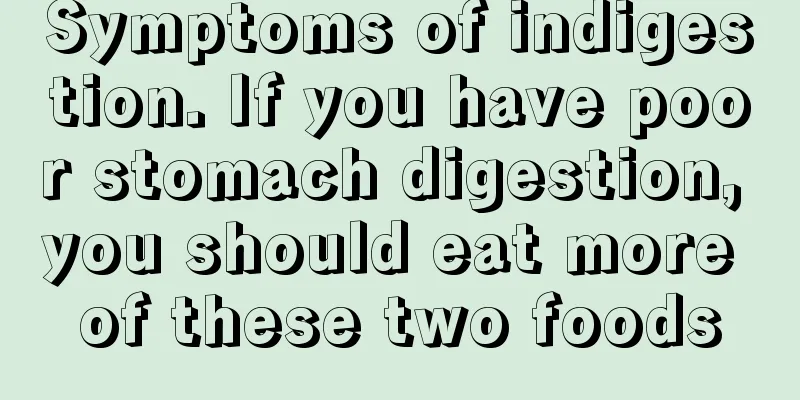What is the reason for high potassium and low sodium

|
Many people will have a physical examination at certain times because physical health is the most important thing. If a disease problem occurs, a physical examination can help detect and treat it in time. For example, some trace elements in the body may undergo irregular changes, such as high potassium and low sodium, and the content of these elements in each person's body is different. However, low elements should be supplemented in time. What causes high potassium and low sodium? It can be said that; potassium is an essential nutrient for human growth. It accounts for 5% of the body's inorganic salts and is very important for maintaining a healthy nervous system and regulating heart rhythm. It prevents stroke, maintains normal muscle contraction, and works with sodium to maintain fluid balance. Clinically, many patients are deficient in potassium due to various reasons, such as frequent vomiting, diarrhea and long-term gastrointestinal drainage, which increase the excretion of potassium from the digestive tract; certain kidney diseases and the use of potassium-excreting diuretics, which increase the excretion of potassium from the kidneys; patients with hyperadrenocortical syndrome or long-term use of adrenocortical hormones, which increase potassium excretion; high-temperature work, high-intensity labor and training, which cause excessive sweating and potassium loss, etc. The above reasons lead to a decrease in the total amount of potassium in the body. When the serum potassium is lower than 3.5mmol/L, it can be diagnosed as hypokalemia based on the condition. When potassium is deficient, the clinical symptoms are often masked by the primary disease. Potassium deficiency reduces neuromuscular excitability, causes general weakness, and reduced reaction ability. In severe cases, it may lead to flaccid paralysis and difficulty breathing. It also causes digestive tract dysfunction, with anorexia, nausea, vomiting, and bloating. In severe cases, there may be intestinal paralysis and intestinal obstruction. Potassium deficiency increases myocardial irritability and causes arrhythmias, atrioventricular conduction block, and even atrial and ventricular fibrillation. The treatment of potassium deficiency should be based on actively treating the primary disease and eliminating the cause to reduce potassium loss. While doctors are considering potassium supplementation with medication, patients with mild or chronic potassium deficiency who can take food orally should eat more potassium-rich foods. I have read from many materials that the mineral potassium is effective in treating severe high blood pressure, stroke, muscle atrophy, heart disease, rickets, and even cancer. Since the recommended intake of potassium is between 2000 and 4000 mg, and it is not yet confirmed how much role potassium can play in saving lives, I suggest that you eat as much potassium-containing foods as possible, because the potassium in the human body mainly comes from food. Beans (such as black beans, green beans, fresh peas), lean meat, dairy products, eggs, potatoes, tea, sunflower seeds, grains, raisins, green leafy vegetables (such as spinach, beets, etc.), fruits (such as bananas, oranges, lemons, apricots, plums, nectarines), etc. are rich in potassium. Since potassium is mainly present in cells and is dissolved and precipitated after tissue damage, it is relatively rich in fruit juice, vegetable soup and gravy. People who are potassium-deficient can drink more delicious thick soups made with the above-mentioned potassium-rich foods. However, some patients with high blood potassium due to renal failure need to limit the intake of the above foods. The impact of potassium deficiency on the body: People who suffer from long-term potassium deficiency will have symptoms such as arrhythmia, abnormal nerve conduction, and vomiting. When a large amount of water is lost (such as diarrhea and very heavy sweating), in addition to replenishing water, electrolytes must also be replenished. If only a large amount of water is replenished without replenishing electrolytes, symptoms of "exhaustion" such as weakness, cramps, vomiting and diarrhea will occur. Potassium deficiency will reduce the excitability of muscles, making it impossible for muscles to contract and relax smoothly, and it is easy to become tired. In addition, it will hinder intestinal peristalsis and cause constipation; it will also lead to edema, hemiplegia and heart attack. When the human body does not take in enough potassium, sodium will carry a lot of water into the cells, causing the cells to rupture and leading to edema. A lack of potassium in the blood can cause high blood sugar levels, leading to hyperglycemia. In addition, potassium deficiency causes the most serious damage to the heart and may be the main cause of death from heart disease in humans. Absorption sources: Meat, milk, cheese, fresh fruits and vegetables, oranges, raisins, potatoes, bananas, and winter melon. Bananas have the highest potassium content. Recommended potassium intake: Potassium intake should not be excessive, otherwise it will cause sodium loss and deficiency. People who take antibiotics or diuretics for a long time, or those who consume too much salt, must consume more potassium. This is a disease that cannot be cured! You still need to take good care of yourself. |
<<: The role of sodium and potassium in the human body
>>: What to eat to replenish kidney yin deficiency the fastest
Recommend
How to wash off chili oil drops on clothes?
Chili oil is a must-have ingredient in many house...
What is the reason for back pain from staying up late
As modern people have more and more entertainment...
Large-scale oil fume cleaning method
Range hoods are an electrical appliance that ever...
What is the function of anthocyanin
Anthocyanin is a nutrient that plays a very impor...
Is it normal to kiss below
The act of sexual intercourse can be said to be v...
What are the differences between cod fish glue and yellow fish glue
Many people in our daily life have the habit of e...
Will cirrhosis lead to death? What is the cause of the disease?
Many people have always been very worried about d...
Is small cell lung cancer serious?
Is the harm of small cell lung cancer serious? Ma...
Do I need to apply repair fluid for the second color touch-up?
After tattooing eyebrows or eye liner, many peopl...
How much does it usually cost to cure a pituitary tumor?
Many people have suffered from pituitary tumors a...
Experts tell you how to prevent stomach cancer?
The occurrence of gastric cancer is the result of...
Burning sensation of chili pepper fingers
Chili is an indispensable condiment in daily life...
A comprehensive analysis of the hazards of fibroids
Nowadays, there are still many patients suffering...
Can I still use the expired shower gel?
In our lives, shower gel is our most common daily...
How to pluck duck feathers cleanly
Many people like to eat duck meat very much. It h...









